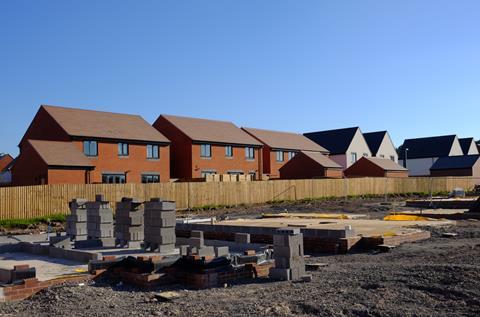Rocky housing market causes profits to fall by nearly one-third, says social housing regulator report

The UK’s shaky housing market caused profits from open market sales of homes built by private registered providers to slump by nearly one-third last year.
New figures from the social housing regulator show receipts from homes built by the sector for open market sale in the year to the end of March 2019 rose 7% to £1.5bn, but the profit on these sales fell 29% to £200m.
Overall, margins on outright sale transactions fell from 19% in 2018 to 13% this year.
The regulator’s annual assessment of the market said the lower margins in for-sale activity reflected movements across the general housing sector, which had experienced “significant regional variations”.
While parts of the north of the country saw house prices increase, London and the South-east – the two regions where the sector sees most of its sales activity – experienced average house price falls during the year of 1.9% and 0.4% respectively. Construction costs on new homes had meanwhile risen by 3.2%.
The regulator said 80% of turnover from homes built for outright sale had been reported by only 20 providers, less than 10% of those groups included in its latest research. “Exposure to the housing market is a key risk for these providers to manage,” it added.
The latest report, which said total sector turnover rose during the year by £400m to £20.9bn, also revealed income from the sales of the first tranche of shared ownership homes – before subsequent “staircasing” activity – increased by 14% to £1.4bn.
The government has indicated it wants to increase shared ownership activity and pledged to offer tenants in new housing association properties the Right to Buy into shared ownership of their home.
The 2019 accounts data also revealed a £200m decline in the reported surplus across the sector to £3.5bn.
The decrease included a £500m reduction in the operating surplus, which includes the surplus on the sale of housing assets, balanced by a £200m increase in gains on business combinations and a £100m rise in the surplus on the valuation of investment properties.
The surplus on social housing lettings fell for the second year running, something the regulator said hadn’t happened since it began collecting annual accounts information in its current format 15 years ago.
The period from 2004 to 2016 saw rents rise in line with inflation, but the most recent reporting year is the third when rents were reduced by 1%, hitting the surplus.










No comments yet